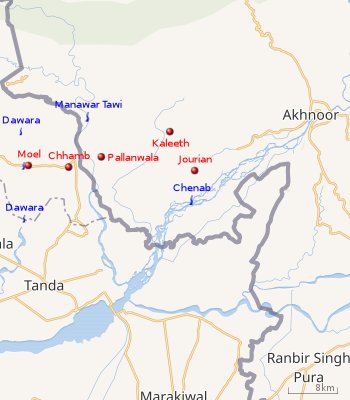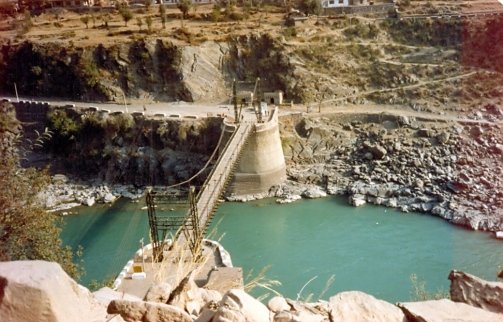
While we know Swami Vivekananda, not many know about his younger brother Bhupendranath Datta an equally great person, nationalist, writer, sociologist who played an important role in the freedom struggle.
Long thread on him.

Long thread on him.


Bhupendranath Datta,was a close associate of Aurobindo during the revolutionary movement, editor of the Jugantar patrika, that motivated many youth in Bengal to lay down their lives for the cause of freedom, was part of the Indo-German conspiracy.
.He was born on September 4, 1880 in Kolkata, the youngest of three brothers after Narendranath Datta(Swami Vivekananda) and Mahendranath Datta, to a lawyer Vishwanath Datta and his devout wife Bhuvaneshwari.
His brother renouncing all family ties, to become Swami Vivekananda, and the sudden death of their father, proved to be a tough phase in his life. The rightful claim of his mother to their property were dismissed by relatives leaving them in penury.
In a rather helpless state she had to move with her children to Ramtanu Bose Lane, where their maternal grandmother took care of them till her passing away in 1903.
He studied from the Metropolitan institute founded by Ishwar Chandra Vidyasagar, and later joined the Brahmo Samaj, which would shape his value system too. He was especially influenced by Shibnath Shastri, and his advocacy of wholesale social reforms.
Around the same time his brother had gained world wide fame after his address at the Parliament of Religions in Chicago, and later would establish the Ramakrishna Math in Kolkata.
His brother’s passing away in 1902 at a very young age of 39 affected him deeply. His mother actively supported the Ramakrishna Math till her demise.
His other brother Mahendranath Datta was an equally fascinating character, who explored most of Continental Europe, Middle East and North Africa by foot, travelling from place to place. Incidentally all the 3 brothers never married till the end of their lives.
It was the time when Bengal was gripped by the fervour of the revolutionary movement, Swami Vivekananda’s lectures on the glory of India, and his call to awaken and arise had stirred the nationalist consciousness.
Bhagini Nivedita meanwhile played an active role in encouraging the revolutionaries, donating around 150 books of hers to the Anushilan Samiti and addressing the youngsters.
It was during one such address at the Town Hall on the glory of ancient India and Hinduism, that influenced Bhupen a lot. He was also influenced by the teachings of Italian thinker Mazinni, as well as events like Japan’s victory over Russia in the 1905 War.
Bhupen would regularly read out Swamiji’s Lectures From Colombo to Almora, at every fitness club, Akhara of the Anushilan, Jugantar revolutionary networks.
In 1902 he plunged into the independence movement, joining the Bengal Revolutionary Society founded by Pramathanath Mitra. He later became an active member of the Jugantar movement, that had spun out from the Anushilan Samiti along with Aurobindo and his brother Barin Ghosh.
Four years later, he would become the editor of the Jugantar Patrika, the mouthpiece of the Jugantar movement in Bengal that started out as a fitness club, along with the Anushilan Samiti.
Most of the members of these two movements later joined Netaji’s Forward Bloc, or the Communist party, while some ended up with the Indian National Congress. As an editor he began to advocate armed resistance to overthrow the colonial rule.
The reders may think that they are weak and they lack the strength to fight the all powerful English. The answer is, do not be afraid. Italy has wiped off the stain of slavery with blood. - Bhupendranath Datta in Jugantar
Is it too much to ask for thousand young men of Bengal who are prepared to sacrifice their lives to free their motherland of stigma and slavery?- Bhupendranath Datta in Jugantar
Without bloodshed the worship of the Goddess will not be accomplished. And what is the number of English officials in each district? With a firm resolve you can bring the English Rule to an end in a single day.- Bhupendranath Datta in Jugantar.
When he disregarded the warnings of the British officials against publishing such inflammatory content, he was arrested on charges of sedition in 1907. He did not back down, proudly claiming.
I am solely responsible for all the articles in question. I have done what I have considered in good faith to be my duty to my country. I do not wish the prosecution to be put to trouble and expense of proving what I have no intention to deny.- Bhupendranath Datta.
His open defiance, and refusal to cooperate with the British court, made him a hero in the eyes of the public, and he was sentenced to one year rigorous imprisonment.
In prison, Nivedita presented him with the Peter Kroptokin’s “Career of a Revolutionary” as well as four volumes of Mazinni’s writings. She also looked after his mother while he was in prison.
Bhupen was punished severely for his non cooperation, being made to grind oil mills, as well as regular assaults by the jailors. The punishment became even harsher when the Alipore Bomb case trials began.
On his release in 1908, Nivedita advised him to leave for the US, to avoid being deported to the notorious Cellular Jail, as the Govt cracked down after the Alipore trials. She arranged for his stay there, as well as providing the aid for his education.
His accomodation was arranged at the India House there, where he met many other revolutionaries and thinkers like George Freeman, who exposed the British exploitation of India.
He finished his post graduation from Brown University, and it was during his stay here he was attracted towards socialism and communism.
However he suffered many personal blows in 1911, first his mother passed away when he was abroad. and in the same year, his mentor Bhagini Nivedita, who had been a major source of support in all ways too passed away, as well as another benefactor Ms.Sarah Bull.
He later joined the Ghadr party, and with the outbreak of World War 1, left for Germany, which by then had become a center for many Indian revolutionaries in Europe. Germany too wanted to use the Indian revolutionaries against their common enemy, the British,
The Kaiser himself played an active role in coordinating with the Indian revolutionaries in Germany. Bhupen He became a secretary of the India Independence Comittee in Berlin in 1916 and later the German Anthropological Society in 1920 and German Asiatic Society in 1924.
With the outbreak of World War I in 1914, the Ghadar party began to plan an armed uprising against the British, with Indian emigrants in US, Canada and the Far East. While these revolutionaries had the arms and money, they lacked the leadership, and Rash Behari Bose stepped in.
It was Vishnu Ganesh Pingle, a US returned Ghadarite who convinced Rash Behari to lead the movement in India. Rash Behari had both the brains as well as the physical strength to pull off this uprising, and Feb 21, 1915, was when it was planned.
As per plan Indian soldiers and officers in the British army, would revolt, capture British officers and take over. However thanks to a traitor called Kirpal Singh, the plans were leaked out, and the revolt was put down.
Bhupen in the meantime was influenced by the Russian Revolution of 1917 and the formation of the Soviet Union. He felt that only a socialist-communist alliance would back India’s independence.
Along with another revolutionary M.N.Roy, he went to Moscow in 1921, joining the Comintern, where he attended their annual conference along with Birendranath Das Gupta.
He presented a paper to Lenin on the political condition of contemporary India, and also obtained a degree in Anthropology from Hamburg in 1923.
In spite of his leftist leanings, he disagreed with them on not working with the Nationalist leaders, whom the Communists felt belonged to the bourgeois class protecting their interests.
He realized that a sustained independence movement needed the Nationalists support to be truly broad based. On his return to India, he joined the Indian National Congress, and at it’s annual conference in 1930, he proposed fundamental rights for farmers.
More drawn to communist ideology, he actively supported the newly formed Communist Party of India, as well as being part of the Workers and Peasant Party(WPP). He began to propagate communist ideals among youth, influencing many to join CPI.
An excellent orator, he was much sought after to deliver the address to the party meetings, and in a letter to S.A.Dange he wanted that Congress should only welcome those with communist ideals.
. Addressing the Young Comrades League at Rajshahi in April 1930, he would motivate many youngsters to abandon anarchism and come over to communism.
When the British Govt cracked down against several trade unionists in the 1922 Meerut conspiracy case, the Leftist movement fell into disarray. Bhupen Da played a crucial role in reorganizing the Communists again along with Panchu Gopal Bhaduri, Kali Ghosh and others.
He was also active in many union movements be it the Kharagpur railway workers, TISCO employees in Jamshedpur or the May Day rallies in Kolkata. When the terrible Bengal famine broke out in 1943, he did his best to mobilize aid and relief to the affected.
His communist leanings however did not stop him from differing with them on many occasions, especially their decision to oppose Quit India and taking part in the War after Hitler attacked the Soviet Union.
He did not accept their stance as the freedom being fake, and gave all the support to Nehru. He was more a moderate who felt that the Nationalist and Communist movements could coexist.
And for this reason the hardline communists felt he was too moderate, while the Congress leaders felt he was a hardcore Leftist. Also his propagating Swamiji's philosophy, did not go down well with hardline communists.
He was an excellent writer, his two books in Bengali, ‘Bharater Dwitiya Swadhinata Sangram’ (‘The Second Freedom Struggle of India) and ‘Aprakashito Rajnitik Itihas’ (Unpublished Political history), have been an important resource for later scholars on Indian freedom struggle.
As an author he wrote many books in Bengali, Hindi and English, one of his more well known ones being on Swami Vivekananda:Patriot-Prophet on his brother’s ideology. He also spread the message of Swamiji as well as Ramakrishna Mission among the masses.
Bhupen spent the last years of his life in their ancestral home along with his brother Mahendranath Datta. He turned down the freedom fighter pension from the Govt, preferred to live an austere, simple life not craving for recognition or privilege.
Bhupendranath Datta finally passed away on Dec 25, 1961, a man who was as great as his more illustrious brother. Much like his brother, he questioned every idea on it’s merit, not blinded by ideological positions.
Bhupendranath Datta,nationalist, writer, thinker, often overshadowed by his more illustrious elder brother, but an equally great soul, whose life story deserves to be known. #Naman, and thanks for following this long thread of mine patiently.
References
Bhupendranath Datta, Swami Vivekananda – Patriot-Prophet
The Life of Swami Vivekananda, by his Eastern and Western Disciples
Sumit Sarkar, The Swadeshi Movement in Bengal
Bhupendranath Datta, Swami Vivekananda – Patriot-Prophet
The Life of Swami Vivekananda, by his Eastern and Western Disciples
Sumit Sarkar, The Swadeshi Movement in Bengal
And do check out my article on him here.
historyunderyourfeet.wordpress.com/2022/09/02/bhu…
historyunderyourfeet.wordpress.com/2022/09/02/bhu…
• • •
Missing some Tweet in this thread? You can try to
force a refresh










